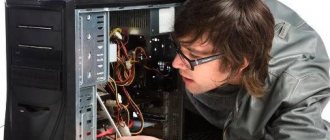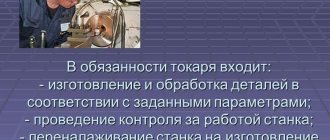I. Work with personnel
1. Selection and qualified placement of personnel.
2. Work to improve staff qualifications:
- ensuring that nurses attend conferences with the head nurse;
- conducting classes within the department according to plan;
- unscheduled knowledge tests of medical staff in the evenings and weekends;
- work on training personnel in related specialties;
- training of personnel for certification and certification.
3. Conducting, together with the head of the department, classes on labor protection, safety precautions, and fire safety.
4. Training of personnel to act in case of emergency situations.
Job description of the head nurse (therapy)
I. General part
1. The nurse must have a secondary medical education, at least 3-5 years of work experience and experience in organizational work.
2. Have a volume of knowledge within the chosen specialty.
3. Appointed and dismissed by the vice-rector for medical work on the recommendation of the head. department.
4. The head nurse reports to the manager. department, the head nurse of the clinic and follows the guidelines of the Council of Nursing.
5. The senior nurse is subordinate to the middle and junior medical staff of the department.
6. During vacation or illness, a ward or treatment nurse replaces the patient.
7. In his work he is guided by this job description and the instructions of the manager. department, senior nurse of the clinic, deputy. director of the clinic.
II. Main goals
1. Ensuring the treatment process, fulfilling medical prescriptions in the department and caring for patients, observing the internal rules of the department.
2. Assisting department staff in organizing the treatment process.
3. Increasing the ideological, political, professional and cultural level, creating a favorable moral climate in the department staff.
III. Job responsibilities arising from the main tasks
1. The head nurse organizes the necessary care for patients based on the principles of the medical and protective regime and compliance with the rules of medical deontology; timely supply of medicines, honey. tools, inventory.
2. Ensures the rational placement of nursing and junior medical personnel in the department.
3. Ensures the systematic implementation of activities to improve the qualifications of junior and mid-level personnel and their education, requires them to accurately, timely perform their duties, be sensitive, attentive to patients, carefully handle medications, instruments, linen and other property, and maintain medical confidentiality.
IV. Responsibilities
1. Strictly monitor compliance with medical uniforms and compliance with internal regulations by patients and employees; supervises the work of nurses, immediately eliminating all noticed deficiencies, conducts systematic instruction of nurses and nurses and organizes practical training with them according to the approved plan.
2. Systematically check the nurses’ compliance with doctor’s orders, the correct maintenance of beds and bedside tables, hygienic care for patients, as well as the sanitary condition of wards and other premises.
3. Monitors the detection of pediculosis in those entering the department.
4. Draw up a work schedule for middle and junior staff and submit it for approval by the head of the department.
5. Draw up a time sheet for the work of personnel in the department as a whole.
6. Ensure timely replacement of nurses and aides who do not show up for work.
7. Submit timely reports on absences from work and on staff reporting to work.
8. Check the correctness of the composition of portion sheets for the nutrition of patients.
9. Observe the strict implementation by staff and visitors of the established rules for visiting patients.
10. Daily control the transfer of duty to middle and junior medical staff and check the correctness of patient care.
11. Ensure the timely receipt of medications and instruments according to the requirements of the ward nurses and control their appropriate distribution and consumption.
12. Check the availability and timely execution of the established documentation for patients discharged from the department.
13. Keep strict records of the receipt, storage, and consumption of drugs, poisons, potent drugs and other medicines.
14. Daily monitor the correctness of accounting, storage and consumption of poisons, drugs, potent drugs and other medicines, alcohol and dressings in accordance with the current instructions at the posts.
15. Maintains records, storage and registration of sick leave.
16. Journal of admission of patients and journal of infectious diseases.
17. Responsible for preparing the patient for demonstration at lectures and rounds.
18. Together with the manager. The department notifies the patient’s relatives about the day and hour of discharge and admission to the clinic, draws up documentation for the patient’s discharge, and, if necessary, organizes transport and an accompanying person.
19. Responsible for the correct storage of sick products and for the condition of refrigerators.
V. Controls:
1. Timely and accurate implementation by nurses of doctor’s orders.
2. Implementation of a therapeutic and protective regime.
3. The work of nursing and junior medical staff in caring for and serving patients by conducting regular rounds of the department.
4. Safety and serviceability of medical instruments.
5. Compliance with sanitary and epidemiological regulations in the department.
6. Timely and proper nutrition of the patient.
7. Implementation of work schedules for nursing and junior medical staff.
8. The manager reports. department about all cases of violation of internal regulations and labor discipline on the part of medical staff.
9. Presents proposals for maintaining documentation, sanitary and hygienic regime to the manager. department.
10. The head nurse is obliged to improve her moral, political, professional and cultural level by studying in the political education system, at conferences organized by the Council of Nurses, and classes held in the department.
11. Ensure the attendance of nursing and junior medical personnel for classes.
VI. Responsible
1. For the correct execution of assignments by nurses.
2. For compliance with the rules of storage, accounting and use of medicines.
3. For compliance with internal regulations and protective regime.
4. For compliance with the sanitary and hygienic regime.
5. For the correct maintenance of medical records.
6. For compliance with labor discipline.
VII. Relationships
Deputy director of the clinic - head. department - head nurse of the clinic - head nurse of the department - nurse - orderly.
1. Receives information from ward nurses about:
o movement of patients;
o the need for medications;
o from the manager department on the need to organize patient care, call cars, discharge patients.
2. Information about violations of discipline and rules of care for patients is presented by the head. department.
3. Information about the movement of patients from the doctor on duty.
VIII. Rights
1. The head nurse has the right to take part in the placement of personnel in the department.
2. Monitor the performance of work on caring for patients by middle and junior medical staff.
3. Introduce the manager. department to encourage the best nurses and nurses and make proposals for disciplinary action.
IX. Incentives and punishments
1. Gratitude, bonus, submission to the “Honor Board”.
- Reprimand, dismissal from work for gross violation of labor discipline, failure to comply with medical ethics, violation of the principles of maintaining medical confidentiality.
job description of a senior nurse
II. Production work
1. Control over the quality and timely implementation by nurses of medical prescriptions:
- infusions, injections, distribution of tablet medications;
- preparing the patient for examinations, manipulations, operations;
- sending patients, accompanied by junior staff, to treatment and diagnostic rooms.
2. Control over the correct collection of biomaterials for various studies.
3. Monitoring the condition of patients, especially those in serious condition.
4. Providing nursing staff with skills to provide qualified care to patients in emergency conditions.
5. Control over the number of patients in the department, drawing up portion requirements for the catering department, taking into account the possible arrival of patients at night and on weekends, timely application for the supply of dietary food to the department.
6. Working with documentation:
- providing the department with the necessary medical documentation and its quality management;
- drawing up employee work schedules, reports, journals and timesheets, applications for medicines, orders for employees to combine related professions;
- correct maintenance of logs for the issuance of narcotic and potent medicines, accounting of warehouse material, subject-quantitative accounting, issuance of certificates of incapacity for work;
- ensuring the safety of all medical documentation, especially strict reporting forms.
7. Proficiency in all types of nursing procedures, if necessary, replacing any department nurse in her absence.
8. Timely provision of the department with medicines, instruments, and dressings.
What is a head nurse? How to get a specialization?
Senior nurse
The hierarchy of medical staff is based on the complexity of carrying out any instructions and work, and the degree of qualification in the healthcare field also influences when obtaining a job. To become a senior nurse, you must fulfill one of the following conditions:
- You can graduate from a secondary specialized educational institution (college) with a degree in nursing.
- Complete a mandatory internship in one of the senior years of a medical institute in the absence of secondary specialized education.
- Study in special private classes, the result of which will be obtaining a certificate in the field of nursing.
The head nurse must have work experience (on average, they hire someone with 5 years of experience). This means that, if you have a suitable education, you will have to climb the career ladder, starting with a ward, guard or “breeding” nurse.
What qualities should a senior nurse have:
- accuracy
- demanding of yourself and your colleagues
- leadership skills
- developed memory
- physical endurance
- concentration of attention
- high emotional stability
- sleight of hand
- analytic skills
Do you have all these skills and personality traits? Then you should consider obtaining a secondary medical education to begin building a career in the healthcare field and become a nurse.
By the way, a senior nurse is not the highest level among all mid-level workers. If you show yourself as a responsible and talented employee, and at the same time, your work experience is already approaching ten years, there is a chance to get the position of chief nurse of a hospital or clinic.
III. Anti-epidemic work
1. Prevention of nosocomial infections:
- monitoring compliance with the rules of asepsis and antisepsis in treatment rooms and dressing rooms;
- providing employees with latex/rubber gloves upon request through the pharmacy;
- daily examination of personnel for the presence of pustular diseases, special attention to the employees of the distribution room, canteen, and nurses performing manipulations;
- control over the timely isolation of infectious patients with the implementation of anti-epidemic measures in the outbreak;
- anti-epidemic measures during the outbreak of ARVI and influenza;
- strict control over all stages of blood transfusion and its components;
- quality control of current and general cleaning carried out by junior staff, as well as current and final disinfection.
2. Providing a set of anti-epidemic measures when identifying a patient with a particularly dangerous infection in accordance with the instructions.
3. Quality control of the sister-housekeeper’s work in timely provision of the department with clean linen, cleaning equipment, detergents, as well as work to combat insects and rodents.
What are the responsibilities of a nurse
The modern nurse has a wide range of responsibilities. She is an indispensable assistant to any doctor.
The functional responsibilities of a nurse include the following:
- nursing;
- provision of medical care until a doctor appears;
- disinfection of instruments;
- preparation of material for dressings and other treatments;
- control over the storage and use of medicines.
The functional responsibilities of a nurse involve recording evidence about the patient's condition and ensuring that he undergoes appropriate medical procedures.
She puts in IVs and gives injections in the hospital, takes blood for analysis, prepares instruments for surgery, measures blood pressure, bandages wounds, etc.
The functional responsibilities of a nurse at a children's clinic include monitoring a sick child and giving advice to his parents about caring for the baby at home. Nurses fill out cards, checklists, and certificates.
In the operating room, a worker of this profile is obliged to ensure that a set of all necessary instruments is available. She helps the surgeon, promptly bringing the required instrument at his request.
In school and kindergarten institutions, the nurse is responsible for ensuring that children receive seasonal and scheduled vaccinations.
What are the functions of a clinic nurse
These nurses are classified as specialists. They must have an incomplete higher education (specialist) or a certificate of basic higher education (bachelor) in the specialty “nursing,” “medicine,” or “midwifery.”
The functional responsibilities of a clinic nurse include:
- following doctor's orders;
- Carrying out procedural manipulations according to the work profile;
- assistance during operations on an outpatient basis;
- taking blood for analysis and ensuring its delivery to the laboratory;
- providing care to patients in an outpatient clinic as well as at home;
- patient resuscitation;
- providing assistance in case of injury, blood loss, intoxication, shock, drowning, burns, frostbite, allergies.
Clinic nurses should understand the following issues:
- laws;
- regulatory documentation;
- regulations of the medical institution in which they work;
- rights and functions;
- principles of operation of outpatient facilities;
- rules for caring for sick people;
- basics of medical examination of citizens;
- pharmacological effects of essential drugs;
- methods of sterilization of instruments;
- hygiene organization;
- preparation of a therapeutic diet;
- safety rules when manipulating medical instruments.
A nurse at this level is involved in informing the population about preventive measures taken against diseases and their possible complications.
A clinic nurse must constantly improve her professionalism.
General information about the profession
A nurse belongs to the nursing staff. She does not have the right to independently make diagnoses, recommend treatment or write prescriptions for medications. Its main function is to carry out orders made by a doctor or paramedic. In the absence of a doctor, a nurse provides care to a patient in a life-threatening condition.
The responsibilities of a nurse depend on the place of work and specialization.
Important! Although nurses do not diagnose or prescribe medications, in medical school they study pharmacology, propaedeutics (the science of examining patients) and other subjects that allow them to have an excellent understanding of medicine.









